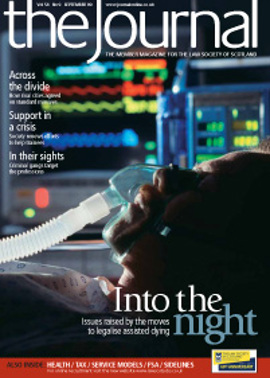Tricky choice over Liechtenstein assets
Tax authorities across the world are striving to ensure that all tax liabilities which should be disclosed to them are disclosed. As part of this endeavour HMRC has been working with the Liechtenstein authorities to develop an arrangement that will, by 2015, mean that all UK-based persons holding assets in Liechtenstein should be paying the appropriate UK tax. This has resulted in the Tax Information Exchange Agreement (TIEA) signed on 11 August 2009 and a memorandum of understanding concerning the Liechtenstein Disclosure Facility (LDF).
The announcement of the LDF was a considerable surprise, following so soon after HMRC announced the New Disclosure Opportunity (NDO) on 28 July 2009. Even more surprising is that the LDF is, in many respects, more advantageous than the NDO and even includes an incentive to transfer funds into Liechtenstein.
The LDF is a separate disclosure facility to the NDO and provides taxpayers with Liechtenstein assets the opportunity to disclose any undeclared UK tax liabilities in return for a fixed penalty, immunity from prosecution and other generally more favourable terms. For those who act quickly, and with careful planning, the LDF provides a landmark opportunity for taxpayers requiring to regularise their affairs to evaluate and choose which disclosure facility is more appropriate in their individual circumstances.
Key differences between NDO and LDF
| NDO | LDF | |
| Key dates | Register between 1 September 2009 and 30 November 2009. Full disclosure by 12 March 2010. |
Register from 1 September 2009 (or 1 December 2009 where Liechtenstein assets acquired after 1 September 2009.) Closes 31 March 2015. |
| What’s covered? | All undeclared UK tax liabilities for the last 20 years (whether connected with an offshore account or not). | All undeclared UK tax liabilities for the last 10 years (i.e. liabilities connected to the Liechtenstein account(s) AND other undeclared UK liabilities). |
| Prosecution? | No guarantee of immunity from prosecution (although HMRC have said prosecution is “extremely unlikely” where full disclosure is made). |
Immunity from prosecution for tax related offences (unless funds derived from “criminal property”). |
| Penalties | Fixed 10% penalty unless contacted by HMRC in connection with ODF when 20% will apply. | Generally fixed 10% penalty. |
| Tax rates | Standard tax rates. | Standard tax rates, or a composite rate of 40% without deductions or reliefs which could be beneficial (e.g. where IHT, PAYE, NIC, etc in point). |
Key LDF challenges
The LDF presents a unique opportunity where some taxpayers (but not all) could choose to transfer funds to Liechtenstein when there has been no connection with Liechtenstein in the past, in order to benefit from the more attractive terms of the LDF. But this also presents a challenge: for example a taxpayer who has a bank account outside the UK or Liechtenstein that was opened through a UK branch or agency of that bank will not, in relation to that account, be eligible for the shorter limitation period, the fixed penalty or the composite tax rate options provided under the LDF.
The choice between using the NDO or the LDF requires careful consideration. In some instances, the LDF is clearly more beneficial, but in others the NDO may be more attractive (e.g. if less than 10 years are involved but the taxpayer has been investigated in the past and signed an incorrect certificate of full disclosure).
There is also a lack of clarity as to what is excluded from the LDF. For example, if 15 years ago someone put the proceeds of an undeclared capital gain into such an account, is this covered by the LDF (and, therefore, not taxable), or considered to be “in relation to that account” and, therefore, outside the terms of the LDF?
Whatever the choice, taxpayers need to act swiftly. The NDO window closes on 30 November and, for those transferring funds into Liechtenstein after 1 September 2009, the LDF window opens on 1 December 2009. Make an error in deciding whether to disclose under the NDO or LDF and it could be an expensive mistake, especially as under the LDF there is a guaranteed immunity from prosecution.
With such complexities and a critical timeline, specialist tax advice is highly recommended before considering or making a disclosure under either facility.
In this issue
- Internet use in the workplace: a digital dilemma?
- Mental Welfare Commission for Scotland under threat
- Tricky choice over Liechtenstein assets
- Cost and benefit
- Curators: the vital link
- Solicitor advocates: the future (part 2)
- Trainee recruitment: dialogue continues
- What sort of life?
- Registers page
- Foot on the ladder
- Recovery vehicle
- Your say
- Lawyers in their sights
- West Bank: a response
- Fairness guide to success
- Facebook debate pulls them in
- Law reform update
- Ahead of the game
- Ask Ash
- A club you don't want to join
- Stress busters
- Into the ether we go!
- Breaking up is hard to do
- Definitive view
- Right that doesn't pale
- Mutu point
- Once bitten, twice shy
- Scottish Solicitors' Discipline Tribunal
- Website review
- Book reviews
- FSA starts to fight back
- For a good clause






